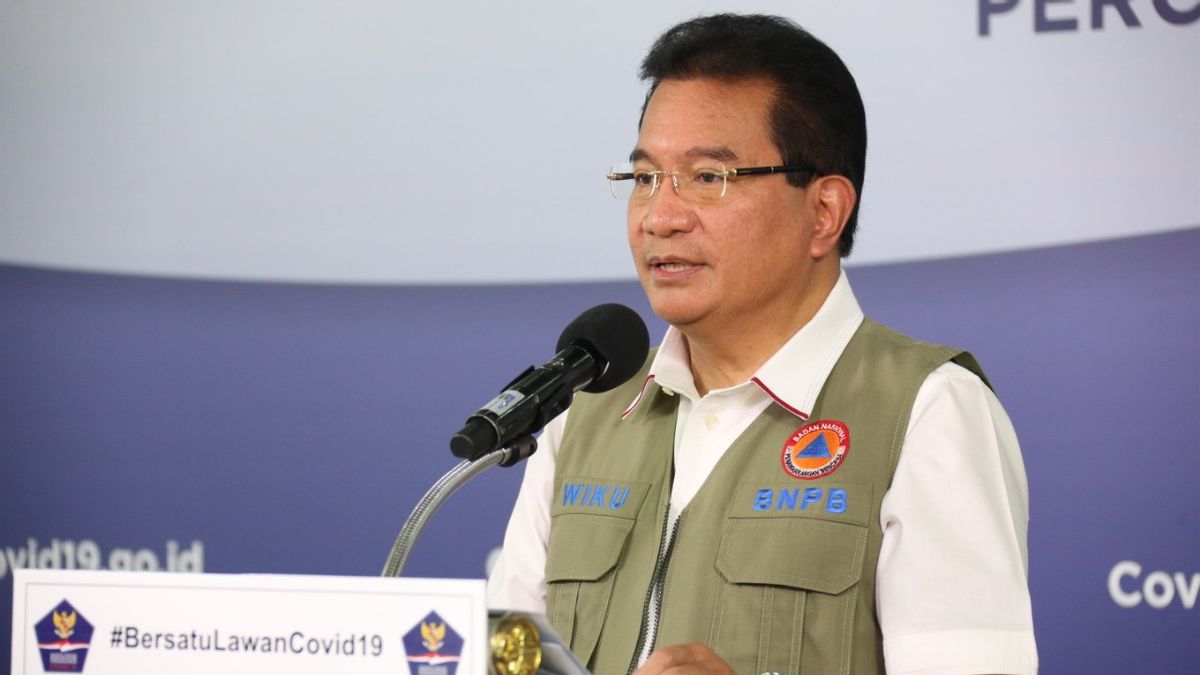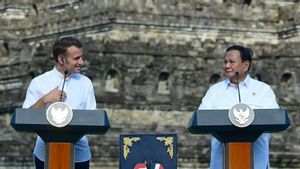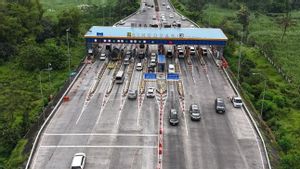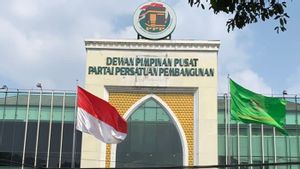JAKARTA - People in Indonesia are affected by the COVID-19. Although they are not exposed to the disease, they are affected socially and economically by the virus.
Before the COVID-19 vaccine was discovered, people were asked to carry out activities safely and productively. The new normal phase is a prerequisite for adapting so that people are not affected by this phenomenon, especially in the economic sector.
Wiku Adisasmito, Team Leader of the Task Force for the Acceleration of Handling COVID-19, said that there are several steps that must be taken during the new normal phase towards a safe and productive society.
"There are steps that need to be taken by local governments towards a safe and productive community for COVID-19," Wiku said in a press conference at the National Task Force Media Center, Jakarta, Monday, June 8.
The first is the precondition stage. At this early stage, local governments precondition by providing information that is holistic, clear and easily understood by the community. This information includes the prevention and handling of COVID-19. Information delivery can be carried out by various parties through socialization and effective public communication.
The second is the timing stage. Namely, determining the time when an area can start socio-economic activation by taking into account epidemiological data, level of compliance with health protocols, readiness of organization and management in the area, and ensuring the readiness of health service facilities.
The third is the priority stage. This stage is carried out to select regions or sectors where socio-economic activities can be recovered gradually by conducting simulations so that these activities can be sustainable.
The fourth is the central and regional coordination stage. This stage is important, because of the need for mutual consultation between the central government and local governments that are synergistic in decision making.
The fifth is the monitoring and evaluation stage. The stages of supervision, control, and evaluation of the implementation of the recovery of socio-economic activities.
"We want to convey, regarding the monitoring and evaluation of regional risk maps. For example, for green zone or unaffected areas, we carry out monitoring and evaluation for unaffected districts. The data change from 102 regencies-cities to 92 regencies-cities is not affected, ”said Wiku.
Furthermore, this data change occurs based on the evaluation of public health indicators.
"We will deliver the results of monitoring and evaluation of zoning on a weekly basis every Monday," he said.
The English, Chinese, Japanese, Arabic, and French versions are automatically generated by the AI. So there may still be inaccuracies in translating, please always see Indonesian as our main language. (system supported by DigitalSiber.id)













